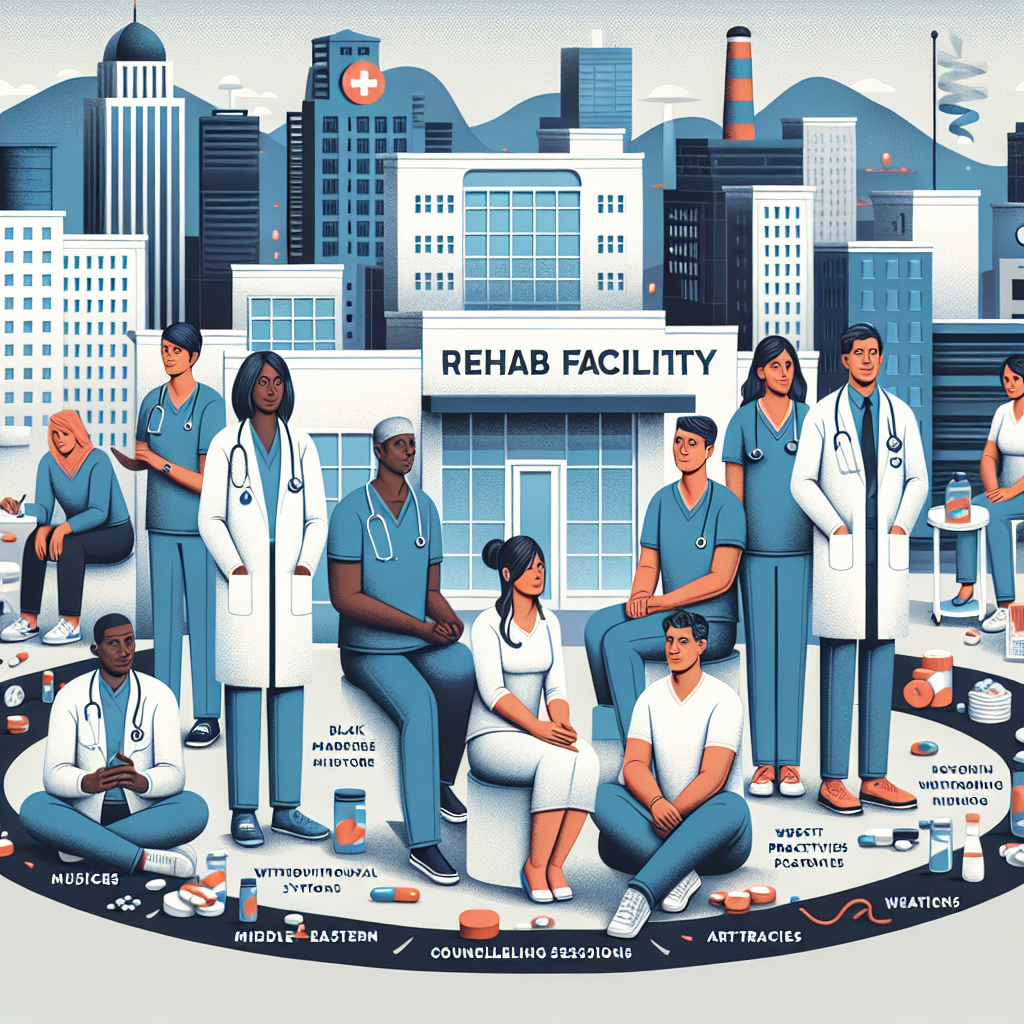-
Table of Contents

“Tracking Triumphs: Measuring Milestones in Addiction Recovery”
Introduction
Addiction recovery services measure progress through a combination of quantitative and qualitative methods. Quantitative measures often include tracking the duration of sobriety, frequency of relapses, and attendance at recovery meetings or therapy sessions. Qualitative measures involve assessing improvements in mental health, social relationships, and overall quality of life through self-reports, therapist evaluations, and peer feedback. Additionally, standardized assessment tools and questionnaires may be used to gauge changes in behavior, emotional well-being, and coping strategies. By integrating these diverse metrics, recovery services can provide a comprehensive view of an individual’s progress and tailor interventions to support sustained recovery.
Key Metrics Used in Addiction Recovery Services to Measure Progress
In the journey of overcoming addiction, measuring progress is crucial for both individuals and the professionals who support them. Addiction recovery services employ a variety of key metrics to gauge the effectiveness of treatment and the strides made by those in recovery. These metrics not only provide a tangible way to track improvement but also serve as a source of inspiration and motivation for individuals striving to reclaim their lives.
One of the primary metrics used in addiction recovery is the duration of sobriety. This straightforward measure tracks the length of time an individual has abstained from substance use. While it may seem simplistic, the significance of each sober day cannot be overstated. Each day represents a victory over the compulsion to use, and as these days accumulate, they build a foundation of resilience and self-efficacy. However, it is important to recognize that recovery is not always linear. Relapses can occur, and when they do, they are not seen as failures but as opportunities to learn and strengthen one’s resolve.
In addition to tracking sobriety, recovery services often assess changes in physical and mental health. Substance abuse takes a toll on the body and mind, and improvements in these areas are strong indicators of progress. Regular medical check-ups, mental health evaluations, and self-reported well-being surveys help professionals monitor these changes. For instance, a decrease in anxiety and depression symptoms, improved sleep patterns, and better overall physical health are all positive signs that an individual is moving forward in their recovery journey.
Another critical metric is the development of coping skills and emotional regulation. Addiction often stems from an inability to manage stress and emotions effectively. Recovery programs focus on equipping individuals with tools and strategies to handle life’s challenges without resorting to substance use. Progress in this area can be measured through self-assessments, therapist evaluations, and real-life applications of these skills. As individuals become more adept at managing their emotions and stressors, they build confidence in their ability to maintain sobriety.
Social reintegration is also a key aspect of recovery. Addiction can lead to isolation and strained relationships, so rebuilding a supportive social network is essential. Metrics in this area might include the quality and quantity of social interactions, participation in support groups, and the ability to form and maintain healthy relationships. A strong support system provides encouragement, accountability, and a sense of belonging, all of which are vital for sustained recovery.
Employment and educational achievements are additional indicators of progress. Addiction can disrupt careers and educational pursuits, so returning to work or school is a significant milestone. Metrics such as job stability, performance, and educational attainment reflect an individual’s ability to reintegrate into society and pursue their goals. These achievements not only boost self-esteem but also provide a sense of purpose and direction.
Lastly, personal growth and self-awareness are invaluable metrics in the recovery process. Addiction often masks underlying issues and hinders personal development. Through therapy, self-reflection, and support, individuals in recovery can gain insights into their behaviors, motivations, and aspirations. Progress in this area is often measured through personal reflections, therapist observations, and the setting and achieving of personal goals.
In conclusion, addiction recovery services utilize a comprehensive set of metrics to measure progress. From the duration of sobriety to improvements in health, coping skills, social reintegration, and personal growth, each metric provides a unique lens through which to view the journey of recovery. These measures not only track progress but also inspire individuals to continue striving for a healthier, more fulfilling life. By recognizing and celebrating each milestone, no matter how small, those in recovery can find the strength and motivation to keep moving forward.
Evaluating Success: Tools and Techniques in Addiction Recovery Services
In the journey of overcoming addiction, measuring progress is a crucial aspect that helps individuals and professionals alike understand the effectiveness of recovery services. Addiction recovery is a multifaceted process, and evaluating success requires a combination of tools and techniques that address the physical, psychological, and social dimensions of an individual’s life. By employing a variety of methods, recovery services can provide a comprehensive picture of an individual’s progress, offering both inspiration and guidance for continued growth.
One of the primary tools used in addiction recovery services is the use of standardized assessments. These assessments often include questionnaires and surveys that evaluate various aspects of an individual’s well-being, such as mental health status, substance use patterns, and quality of life. For instance, the Addiction Severity Index (ASI) is a widely used instrument that assesses multiple areas of an individual’s life, including medical status, employment, legal issues, family and social relationships, and psychiatric status. By regularly administering these assessments, recovery services can track changes over time and identify areas that may require additional support.
In addition to standardized assessments, self-reporting plays a significant role in measuring progress. Self-reporting allows individuals to reflect on their own experiences and provide personal insights into their recovery journey. This method not only empowers individuals by giving them a voice in their own recovery but also helps professionals tailor interventions to better meet their needs. For example, individuals may keep journals or complete daily check-ins that document their thoughts, feelings, and behaviors. These self-reports can reveal patterns and triggers that may not be immediately apparent through other assessment methods.
Another important technique in evaluating success is the use of biological measures. Biological measures, such as urine tests, blood tests, and breathalyzers, provide objective data on an individual’s substance use. These measures are particularly useful in verifying self-reported abstinence and detecting any potential relapses. While biological measures alone do not provide a complete picture of recovery, they serve as a valuable complement to other assessment tools, offering concrete evidence of an individual’s progress.
Furthermore, the role of peer support and community involvement cannot be overstated in the recovery process. Peer support groups, such as Alcoholics Anonymous (AA) and Narcotics Anonymous (NA), provide a platform for individuals to share their experiences, offer encouragement, and hold each other accountable. The sense of belonging and mutual support found in these groups can be a powerful motivator for individuals to stay committed to their recovery goals. Recovery services often measure progress by tracking an individual’s participation in these groups and the extent to which they engage with their recovery community.
Lastly, the concept of personal milestones is integral to evaluating success in addiction recovery. Personal milestones are individualized goals that reflect an individual’s unique journey and aspirations. These milestones can range from achieving a certain period of sobriety to rebuilding relationships with loved ones or securing stable employment. By setting and celebrating these milestones, individuals can experience a sense of accomplishment and motivation to continue their recovery efforts. Recovery services play a crucial role in helping individuals identify and achieve these milestones, providing support and encouragement along the way.
In conclusion, measuring progress in addiction recovery is a dynamic and multifaceted process that requires a combination of standardized assessments, self-reporting, biological measures, peer support, and personal milestones. By employing these tools and techniques, recovery services can offer a comprehensive and individualized approach to evaluating success. This holistic perspective not only provides valuable insights into an individual’s progress but also inspires hope and determination for a brighter, healthier future.
Q&A
1. **Question:** What metrics are commonly used by addiction recovery services to measure progress?
**Answer:** Common metrics include the duration of sobriety, frequency of attendance at support meetings, completion of treatment programs, and improvements in physical and mental health.
2. **Question:** How do addiction recovery services assess improvements in mental health during recovery?
**Answer:** Improvements in mental health are often assessed through regular psychological evaluations, self-reported surveys, and monitoring changes in behavior and emotional stability.
Conclusion
Addiction recovery services measure progress through a combination of quantitative and qualitative methods, including regular drug testing, self-reported surveys, clinical assessments, and tracking key metrics such as attendance at therapy sessions, participation in support groups, and adherence to treatment plans. Additionally, they monitor improvements in physical health, mental well-being, social relationships, and overall quality of life. These comprehensive evaluations help to provide a holistic view of an individual’s recovery journey and inform necessary adjustments to treatment strategies.



